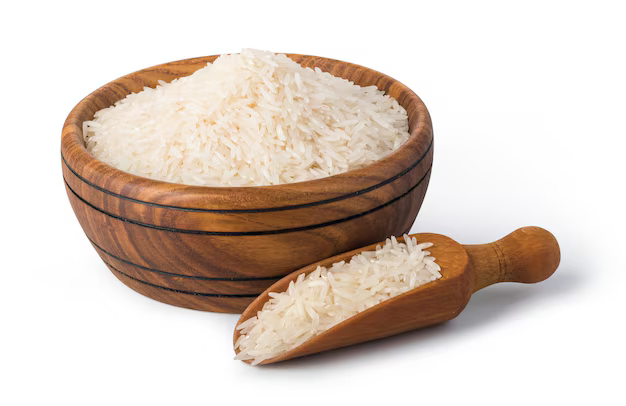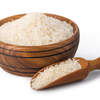Basmati vs. Sona Masoori: Which Rice is Best for Your Health & Cooking?

Rice is a staple food in many cultures, especially in India, where it forms the foundation of countless dishes. Among the diverse varieties of rice, Basmati and Sona Masoori stand out for their unique characteristics and widespread use. Choosing between these two can influence not only the flavor and texture of your meals but also their nutritional profile. This comprehensive guide delves into the origins, characteristics, nutritional benefits, and culinary applications of Basmati and Sona Masoori rice to help you determine which aligns best with your health goals and cooking preferences.
Origins and Characteristics
Basmati Rice
Often referred to as the "queen of rice," Basmati has been cultivated for centuries in the fertile plains of the Indian subcontinent, particularly along the Himalayan foothills. This long-grain rice is celebrated for its slender, needle-like grains that elongate significantly upon cooking. Basmati's distinctive aroma, reminiscent of pandan leaves and popcorn, is attributed to the presence of a specific aromatic compound. The aging process, which can last up to a year or more, enhances its flavor and cooking qualities, making it a prized ingredient in dishes like biryanis and pilafs.
Sona Masoori Rice
Sona Masoori is a medium-grain rice predominantly grown in the southern regions of India, especially in the states of Andhra Pradesh and Karnataka. It is a hybrid variety, derived from the crossbreeding of Sona and Masoori rice strains. Known for its lightweight and aromatic qualities, Sona Masoori has a slightly sticky texture when cooked, making it versatile for various culinary applications, from everyday steamed rice to specialty dishes like pongal and idli.
Nutritional Profile
Understanding the nutritional composition of these rice varieties can aid in making informed dietary choices.
Basmati Rice
Basmati rice is a good source of carbohydrates, providing sustained energy. It contains essential amino acids, folic acid, and is low in fat and cholesterol. Notably, Basmati has a medium glycemic index, which means it causes a moderate rise in blood sugar levels, making it a better option for those monitoring their blood glucose. Additionally, it is gluten-free, catering to those with gluten sensitivities or celiac disease.
Sona Masoori Rice
Sona Masoori rice is also rich in carbohydrates and is known for being lighter on the stomach due to its lower calorie content compared to Basmati. It is low in fat and sodium, making it suitable for those aiming for a heart-healthy diet. While it has a higher glycemic index than Basmati, it remains a staple in many traditional diets and can be consumed in moderation as part of a balanced meal.
Health Benefits
Both rice varieties offer distinct health advantages.
Basmati Rice
-
Digestive Health: The fiber content in Basmati aids in smooth digestion and can help prevent constipation.
-
Heart Health: With low levels of saturated fats and cholesterol, Basmati supports cardiovascular well-being.
-
Weight Management: Its lower glycemic index and moderate calorie content make it conducive for weight management when consumed in appropriate portions.
Sona Masoori Rice
-
Energy Supply: The high carbohydrate content provides a quick and efficient source of energy, ideal for active individuals.
-
Low in Sodium: Beneficial for those managing blood pressure levels, as low sodium intake is associated with reduced hypertension risk.
-
Easily Digestible: Its lightness makes it gentle on the digestive system, suitable for individuals recovering from illnesses or with sensitive digestion.
Culinary Applications
The choice between Basmati and Sona Masoori can significantly impact the outcome of a dish.
Basmati Rice
Its fragrant aroma and fluffy texture make Basmati ideal for:
-
Biryani and Pilaf: Where separate, long grains are desired.
-
Fried Rice: Its ability to remain non-sticky ensures each grain is distinct.
-
Side Dish: Accompanying rich curries and gravies, absorbing flavors without becoming mushy.
Sona Masoori Rice
The slightly sticky and softer texture of Sona Masoori suits:
-
South Indian Delicacies: Such as pongal, lemon rice, and tamarind rice.
-
Everyday Meals: As steamed rice paired with sambar, rasam, or dal.
-
Rice-based Desserts: Like kheer, where a cohesive texture is beneficial.
Cooking Techniques
Proper preparation enhances the inherent qualities of each rice type.
Cooking Basmati Rice
-
Rinsing: Wash the rice under cold water until the water runs clear to remove excess starch.
-
Soaking: Soak the rinsed rice for 30 minutes to an hour to allow the grains to absorb water, leading to elongated, tender grains post-cooking.
-
Cooking Ratio: Use a 1:1.5 or 1:2 rice-to-water ratio, depending on the desired firmness.
-
Simmering: Bring to a boil, then cover and simmer on low heat until water is absorbed and rice is tender.
-
Resting: Let the rice sit covered for 5-10 minutes off the heat, then fluff gently with a fork before serving.
Cooking Sona Masoori Rice
- Rinsing: Similar to Basmati, rinse thoroughly to eliminate excess starch.
- Soaking: A shorter soaking period of 15-20 minutes suffices.
- Cooking Ratio: A 1:2.5 rice-to-water ratio is typical, as Sona Masoori absorbs more water.
- Boiling Method: Bring water to a boil, add the rice, and simmer on low heat until it is soft and fully cooked. Stir occasionally to prevent sticking.
- Draining (if needed): Some people prefer to cook Sona Masoori rice with excess water and then drain it to achieve a lighter texture.
-
Resting and Fluffing: Let the rice sit for a few minutes before fluffing with a fork to achieve the best texture.
Which Rice is Better for Your Health?
Both Basmati and Sona Masoori rice have their own nutritional benefits, making them suitable for different dietary needs.
- For Diabetics & Weight Watchers: Basmati rice, with its lower glycemic index, is a better option for those managing blood sugar levels and maintaining a healthy weight.
- For Low-Calorie Diets: Sona Masoori rice contains fewer calories per serving, making it an ideal choice for people looking to reduce their calorie intake.
- For Digestion & Light Meals: Sona Masoori is easier to digest, making it preferable for light meals or individuals with sensitive digestion.
- For Long-Lasting Satiety: Basmati rice takes longer to digest, keeping you fuller for longer and preventing hunger pangs.
Which Rice is Better for Cooking?
Your choice between Basmati and Sona Masoori rice also depends on the dish you are preparing:
- For Aromatic & Flavored Dishes: Basmati rice is best for biryanis, pulao, and special occasions where fragrance and texture matter.
- For Everyday Cooking: Sona Masoori is perfect for daily meals like dal rice, sambar rice, and curd rice due to its soft texture.
- For South Indian Recipes: Sona Masoori is the go-to rice for traditional South Indian dishes like lemon rice, tamarind rice, and pongal.
- For International Dishes: Basmati rice works well for Persian, Middle Eastern, and even some Western rice-based dishes.
Price & Availability
Basmati rice, especially aged varieties, is often more expensive than Sona Masoori due to its unique aging process and export demand. On the other hand, Sona Masoori is more affordable and widely available in local markets and Indian grocery stores.
Both rice varieties are easily available in the USA through online stores and Indian supermarkets.
Conclusion: Where to Buy Indian Groceries Online in the USA?
If you’re looking for authentic Indian rice, whether Basmati or Sona Masoori, along with other grocery essentials, Buniyaa is your one-stop solution!
Why Choose Buniyaa?
- Wide Selection of Authentic Indian Groceries: From rice, lentils, and spices to snacks and frozen food, Buniyaa offers a vast collection of products.
- High-Quality & Trusted Brands: Only the best brands and freshest ingredients are stocked.
- Convenience of Online Shopping: Order from the comfort of your home and get groceries delivered to your doorstep.
- Competitive Prices & Deals: Regular discounts and offers make shopping affordable.
- Fast & Reliable Delivery: Timely shipping ensures you get fresh groceries without any delays.
Whether you're a fan of Basmati’s long, fragrant grains or Sona Masoori’s soft, everyday texture, you can find both varieties on Buniyaa’s online store.
So, why wait? Shop now at Buniyaa and experience the best Indian grocery shopping in the USA!




